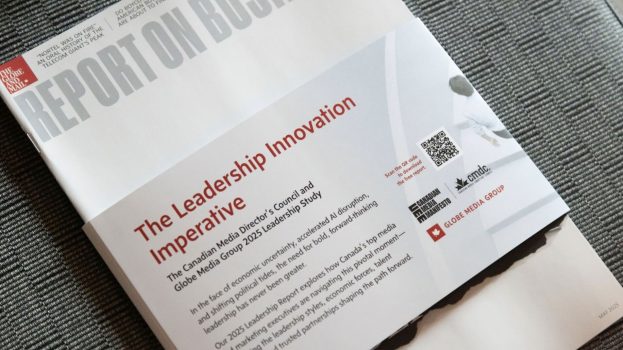In part two of a three-part series delving into the Institute of Communication Agencies’ plan for encouraging more original work in Canada, nurturing talent and arguing the case for marketing’s economic value, the ICA’s CEO and professional development director reveal the education piece
The backgrounds of the senior leaders of Canadian communication agencies are as diverse as the campaigns they develop. Many came to our industry with graduate degrees from esteemed academic institutions, and worked with organizations in the highly competitive categories of packaged goods, telecommunications, automotive or financial institutions.
Others came via a much more tangential route, and many never really expected to end up in advertising – at least not in the calculated, career-planning sense. Yet once they’re here, they can’t see themselves doing anything else.
Advertising – or as we now define it, marketing communications – has rarely been one of those careers you hear kids saying they want to get into when they grow up. Maybe that’s because it doesn’t fit neatly into any clear-cut mold, like law or accounting…or rocket science or brain surgery, for that matter.
Or maybe it’s because marketing communications is really a hybrid, combining as much science as art, and therefore hard to categorize. Either way, the people who are good at it – whether on the creative or account management side – are a breed unto themselves: creative, business-minded, able to see things differently, opinionated, usually a lot of fun and sometimes prickly and irreverent.
Cultivating and managing the skill set that makes a successful communications professional has long been handled by the industry as an apprenticeship system. Senior people mentored up-and-comers, who picked up the craft through advice and on-the-job experience. But now, with resources and time stretched so thin, the apprenticeship system of old has all but vanished.
That’s where the ICA comes in. We’re taking steps to develop a comprehensive program that will nurture the emerging generation of agency execs the way the apprenticeship system used to do. It all begins with our clients’ expectations, and we know from our own research what they want.
Clients are looking for trusted agency people who understand their business and are grounded in communications disciplines, but can also go beyond linear business thinking.
Clients want problem-solvers who can navigate through complex situations and lead them out of the confines of their day-to-day business to a place where creativity and true innovation are possible.
Clients need agencies to help them harness the power of the digital age to connect with consumers.
Clients understand that following a linear path allows them to hang on to what they have, but that it’s not enough to make them successful.
At the moment, the ICA has the CAAP course, an established training program that teaches entry-level agency people the fundamentals. As well, working with other industry partners, the ICA has created an undergrad program to teach marketing communications at Wilfrid Laurier University in Waterloo, Ont.
But we need more.
Soon, in conjunction with an Ontario university, we’ll be announcing a masters program built upon an original Canadian curriculum available to ad practitioners from all disciplines with more than 10 years of agency experience. The aim of the program is to identify and nurture the next generation of agency leaders and to fast-track them to the next level of experience and sophistication.
Available initially to 20 people across the country, the program will be conducted over a 12- to 15-month period on an executive basis, with participants keeping their day jobs while they’re learning.
The program will be sensitive to the subtle skills that are unique to our profession. It will help people venture outside conventional thinking and test their judgment and creativity. It will provide an opportunity to build conceptual prototypes, while honing negotiating skills. It will allow them to experiment, and apply creative problem-solving skills to achieve business objectives in a digital world.
Basically, the program will provide a formalized structure for senior agency people to validate their ability to think and to innovate in an atmosphere of trust, encouragement and mentorship.
It’s the kind of training that senior executives need to hone their craft and excel as leaders in this increasingly complex communications landscape.
Gillian Graham is CEO of the Institute of Communication Agencies; Suzanne Filiatrault is the ICA’s director, professional development.























